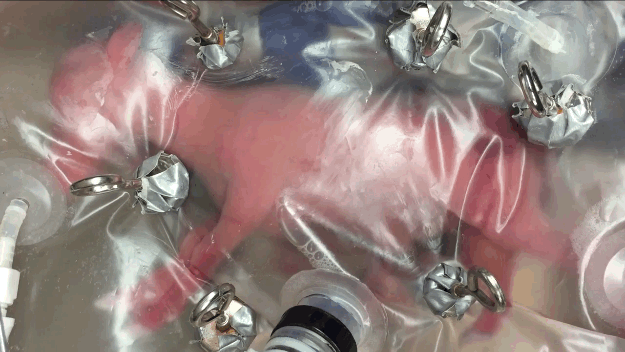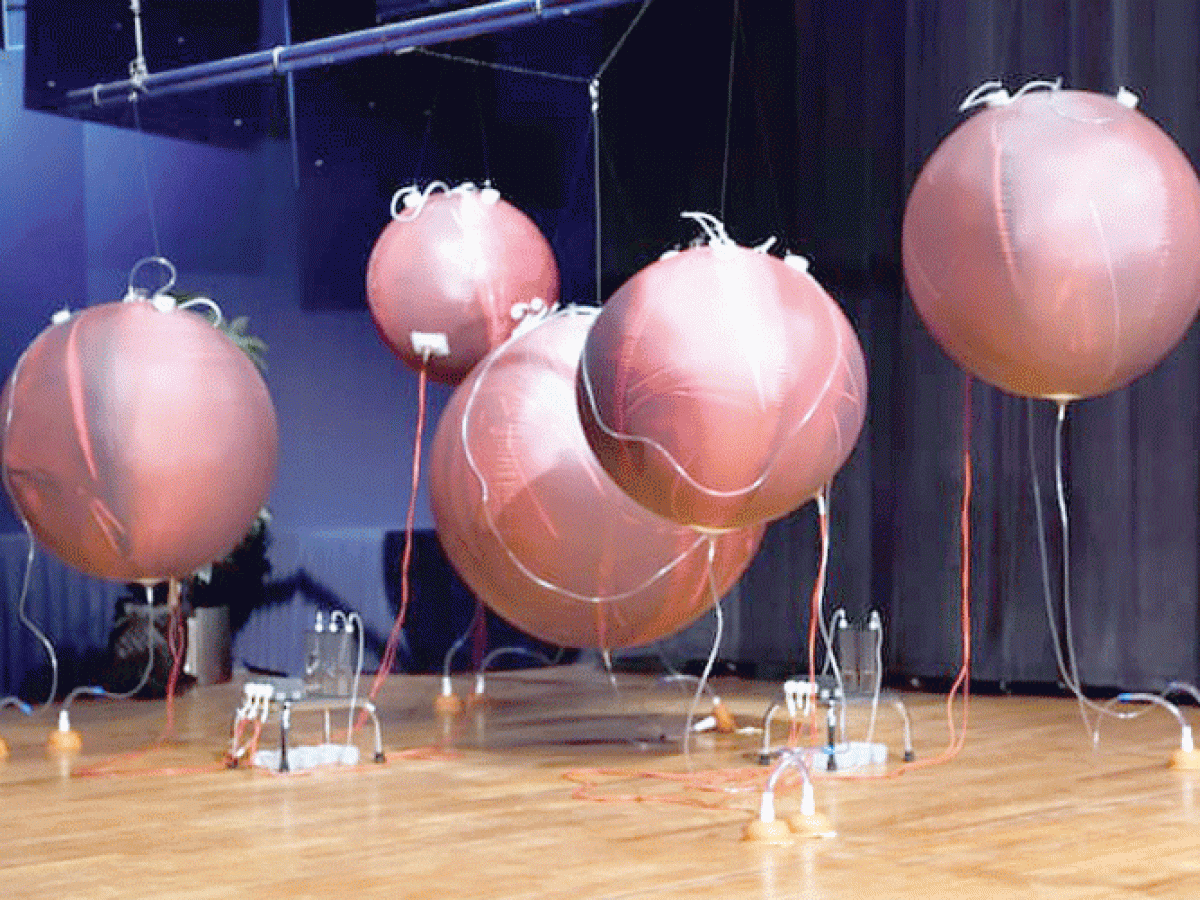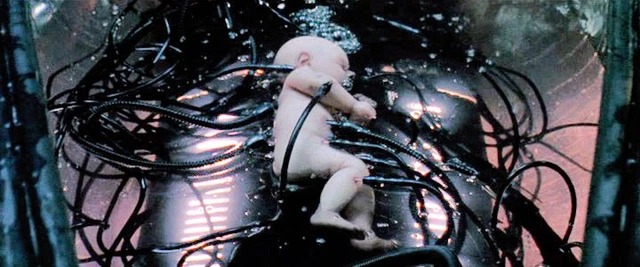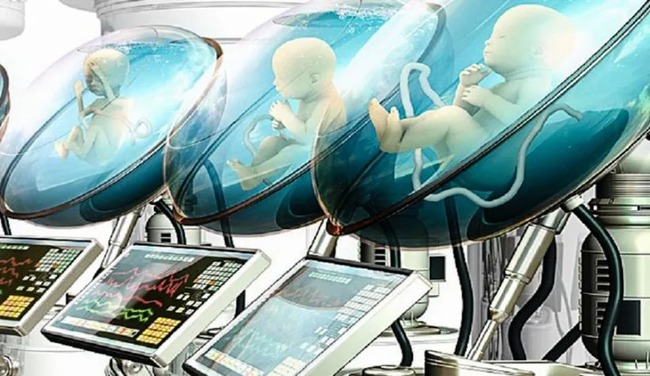Having made an artificial uterus, now science even makes a “nanny” to take care of it
The “artificial womb” has long been a familiar concept when scientists announced this groundbreaking invention that gives premature babies a chance to survive and develop fully. Five years ago, in 2017, researchers at Children’s Hospital of Philadelphia, USA invented an artificial uterus (called Biobag) and successfully tested it on lambs.
At that time, this invention attracted the attention of the world because it was a very important breakthrough to give premature babies a better chance of survival. Biobag (also known as “miracle bag”) is a biological bag filled with a solution that is similar to the amniotic fluid in the mother’s uterus.

The scientists tested the artificial uterus with sheep at 105 to 120 days of pregnancy, equivalent to a newborn baby between 22 and 24 weeks.
After being placed in the bag, the premature fetus continues to have blood circulation and gas exchange through a duct. In this environment, fetuses are safer than incubators. Another plus is that the device does not use a mechanical pump at all as even gentle artificial pressures can be fatal to the child.
The scientists tested the artificial womb with sheep between 105 and 120 days of pregnancy, equivalent to a newborn baby between 22 and 24 weeks. According to the results published in the journal Nature Communications, six lambs. Lambs continue to develop normally even after coming out of the womb, they continue to perfect their organs, they can also move, open their eyes, swallow amniotic fluid and grow more hair. “They seem to be developing normally in all respects,” scientists said.

Images of artificial uterus have been studied by scientists.
Over the past 5 years, scientists have been making constant efforts to perfect this “miracle bag” even more. However, this new invention cannot replace the mother’s womb, it is not intended to end the pregnancy early, but only to facilitate better care for the premature newborn.
Now, researchers in China say they are developing a robotic artificial intelligence system to care for embryos as they develop in an artificial womb. That means there will be no need for human hands to take care of, minimizing the impact from the outside on the fetus.
According to The Independent, this information is published in the Journal of Biomedical Engineering. The robotic “nanny” is currently being tested to nurture several animal fetuses.
The researchers say they plan to develop technology that could allow parents to raise babies in the lab so that women no longer have to get pregnant on their own. They say the “nanny” robot will “optimize and improve the in vitro embryo culture system” and say they want to create “an online monitoring system designed for long-term embryo culture.” long”.
The system also allows embryos to be nourished more efficiently than in the wild, according to the study. If you have seen the movie “The Matrix”, you will imagine this is probably the future of many children born from artificial wombs.

Image of an artificial uterus in the movie “The Matrix”.
However, the development of this technology is also controversial as scientists will have to test them on real children as well as the long-term effects of using an artificial uterus on young children. That is not to mention the ethical issues when people can maintain the breed in a non-traditional way.
The report also adds: “There are still many unsolved mysteries about the physiology of typical human embryonic development.”
Creating such technology will also help understand the origins of human life and embryonic development and provide answers to address birth defects and important reproductive health issues. other important.

In 2019, Associate Professor of Law Neera Bhatia and biomedical and public health researcher Evie Kendal wrote in their paper on how an artificial uterus can support premature babies.
They wrote: “Currently, babies born earlier than 22 weeks gestation have little or no hope of survival. And babies born at 23 weeks are likely to suffer from a range of disabilities. Using the uterus artificial, mimicking the mother’s uterus, can help extremely premature babies survive and improve their quality of life.”
Source: Ladbible, Independent
at Blogtuan.info – Source: Afamily.vn – Read the original article here



